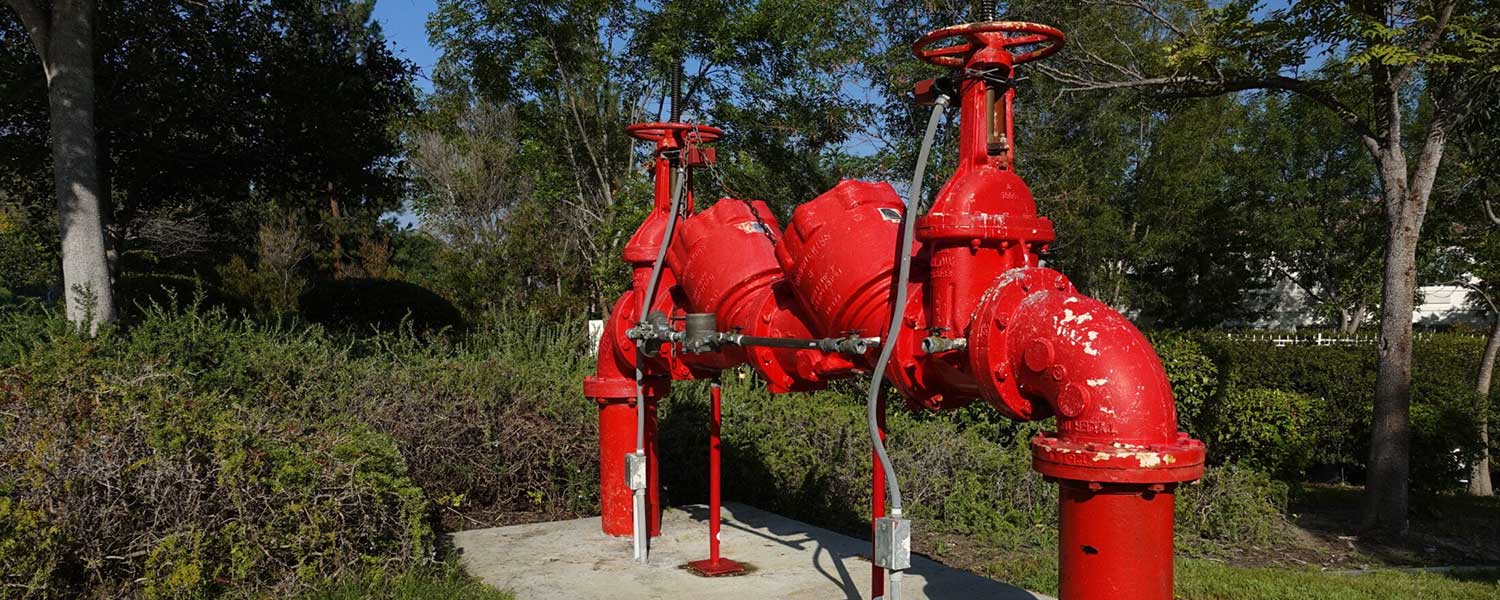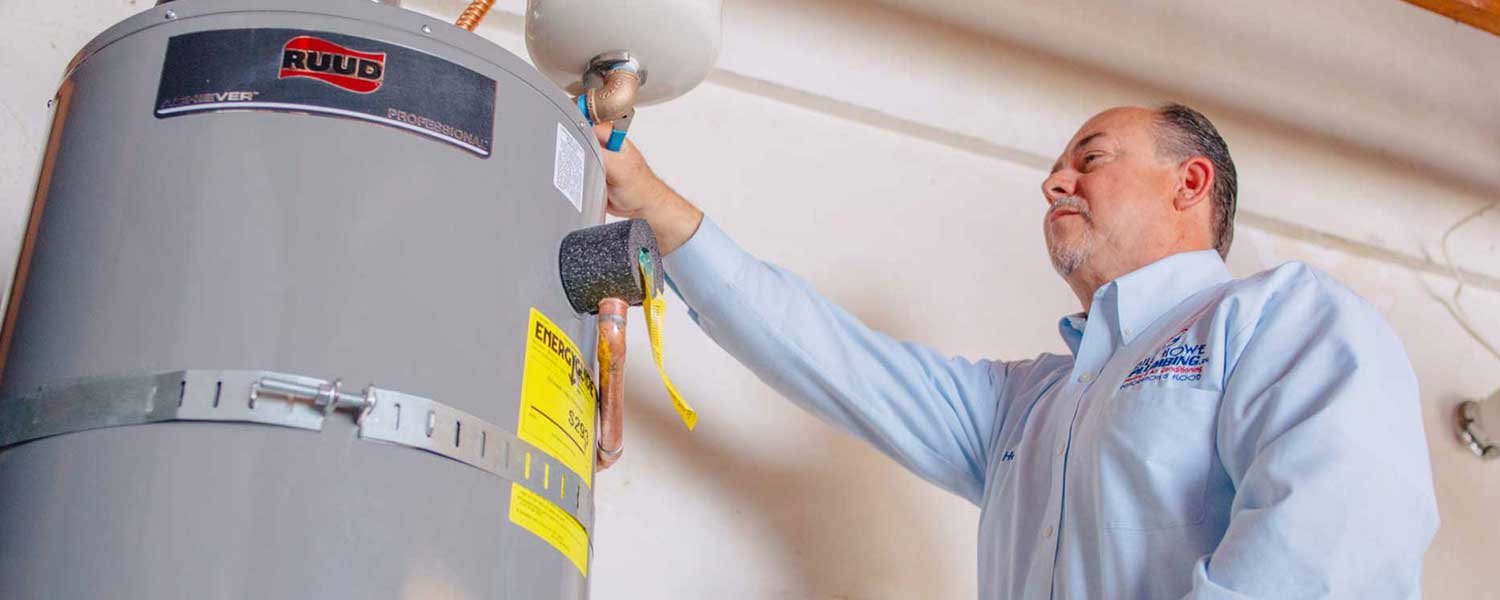Dealing with a water heater burst is not only inconvenient but also poses potential electrical hazards and flood problems due to the substantial water spill. When it’s time to replace your water heater, the choice between a tankless or tank water heater has many people scratching their heads. Many people are unaware of the key differences between tankless and tank water heaters. The main difference is that a tankless water unit heats water on demand, while a tank model stores hot water in its storage tank.
Hot water is a must-have in any home or business. After all, many people prefer to take a nice hot shower in the morning. When it comes to removing stains or grime from your laundry, hot water is key. So, when it’s time to find a replacement, it pays to know the difference between a tankless water heater vs. a tank model.
There are pros and cons of tankless water heaters vs. tank models, and Bill Howe is ready to assist you in the replacement and installation process. While both types can heat water for bath and kitchen use, they do it differently. To make an informed decision, it’s essential to weigh the pros and cons of each type, considering factors like installation costs, location, water usage, and functionality.
What Is a Tank Water Heater?
A tank water heater, also known as a storage or conventional water heater, is a water heating system that stores and heats a designated quantity of water within a tank. Tank water heaters are the most common type, often found in basements and garages. The system maintains a reservoir of water at a set temperature, ensuring hot water is always ready when needed.
How Does a Tank Water Heater Work?
A tank water heater works by storing and heating water in a tank, similar to how you would heat water in a pot on a stove. Once heated, the water remains hot until it’s needed. Here’s how it works:
- Storage tank: The water heater has a tank, usually made of steel, storing 20 to 80 gallons of water or more for high-capacity units.
- Heating element: Inside the tank, a heating element (gas or electric) warms the water.
- Temperature control: A thermostat lets you set and control the water temperature.
- Dip tube: Cold water enters at the bottom through a dip tube, preventing immediate mixing with the hot water at the top.
- Hot water outlet: When you need hot water, it’s drawn from the top through a pipe connected to the outlet.
- Pressure relief valve: For safety, a valve releases excess pressure in the tank that builds up while the water is heated and expands.
In a nutshell, it ensures hot water is always available for your needs — but only up to a certain capacity.
Upsides of Tank Water Heater vs. Tankless
The following are the upsides of tank water heaters for your home or business:
- Cost-efficiency: Tank water heaters have a lower upfront cost, making them an economical choice.
- Inexpensive repairs: Maintenance and repairs are generally more affordable due to the simpler design.
- Improved efficiency: Newer models offer increased insulation, enhancing overall efficiency.
- Ease of operation: Simple operation and the ability to heat a significant amount of water.
What Are the Downsides of a Tank Water Heater
Tank water heaters seem like a good addition to any home, which is why they’re much more common in homes than tankless water heaters. However, tank water heaters do have some downsides. Drawbacks include:
- Higher utility bills: Less energy-efficient, leading to potentially higher energy bills.
- Space requirements: Occupies more space than tankless heaters, which is challenging for homes with limited indoor space.
- Wait time for hot water: Delay in hot water replenishment, especially during simultaneous usage.
- Shorter lifespan: Typically lasts around 12 years, requiring more frequent replacements. With routine maintenance, you can extend the life of your tank water heater up to 15 years. Homeowners with a tank water heater should consider scheduling regular maintenance.
Tank water heaters have an anode rod. The anode rod is a sacrificial element intended to corrode. It attracts corrosive chemicals in the water through electrolysis so that the inside of the tank doesn’t corrode. Tanks with an anode rod (not all do; some have two) are checked for corrosion and replacement during annual maintenance. Bill Howe’s hot water experts can flush the tank regularly and perform an inspection. - Leak risks: Over time, tank water heaters may develop leaks, causing potential home damage. Your tank water heater can start to leak due to improper maintenance, manufacturing defects, or other factors. Regular maintenance from trained and certified technicians may extend the life of the tank heater, but it will eventually fail with age.
Traditional tank water heaters are still a great choice for a more budget-friendly installation and maintenance. How often do you use hot water? This is a great way to determine if a tank water heater is the right fit for your home. We’ll continue the tankless vs. tank water heater discussion with some valuable information about tankless water heaters.
What Are Tankless Water Heaters?
While tank water heaters are still common in homes across America, tankless water heaters are gaining popularity. In fact, they’re already wildly popular globally. After all, reducing energy costs and saving money are high on every homeowner’s list, no matter where they live.
So, what are tankless water heaters? A tankless water heater, also known as an on-demand water heater, delivers hot water as you need it. This design eliminates the need for a bulky storage tank, delivering instant and continuous hot water when you use a faucet or appliance. Do you like long showers? Do you want to save money on your energy bills? With a tankless system, you can have the best of both worlds.
When it comes to tankless water heaters, there are two types to consider: Gas-powered and electric-powered water heaters. Gas-powered tankless water heaters use natural gas or propane gas and tend to be a bit more expensive than electric-powered models.
How Do Tankless Water Heaters Work?
- Water flow initiation: When you turn on a hot water tap or appliance, cold water starts to flow through the pipe into the tankless water heater.
- Flow sensor activation: The sensor detects water movement through the unit and activates the heating elements or burners.
- Heating process:
- Electric heating elements are activated in electric tankless water heaters to heat the water as it passes through the unit.
- In gas tankless water heaters, a gas burner is ignited to heat a heat exchanger. The cold water passes through this heat exchanger, absorbing the heat from the burner flames.
- Temperature regulation: A temperature sensor monitors the outgoing water temperature and adjusts the heating elements or burner to maintain the desired hot water temperature.
- Continuous supply: The hot water is delivered instantly to the faucet or appliance. As long as there is a demand for hot water, the tankless water heater continues to heat and supply it.
- Shutdown: When you turn off the hot water tap or appliance, the flow sensor detects the reduction in water flow and signals the heating elements or burner to shut down.
Upsides of a Tankless Water Heater vs. Tank
Why are so many homeowners converting to tankless water heaters? Is it true that tankless water heaters outperform tank water heaters? Are tankless water heaters good? Let’s check out the upsides of having a tankless water heater in your home.
The following are the pros of a tankless water heater:
- Lower energy costs: Greater energy efficiency leads to potential savings of up to 70% on energy bills.
- On-demand heating: Continuous hot water supply without running out. There’s no wait time for hot water, even if multiple people are showering or doing loads of laundry simultaneously.
- Space efficiency: Compact size, suitable for both indoor and outdoor installation.
- Extended lifespan: Lasts approximately 20 to 30 years, reducing the frequency of replacements.
- Less prone to leaks: Tank water heaters will leak after about eight to 12 years, and if you don’t know, it can flood your home and leak, leading to possible mold growth. Tankless systems have a lower risk of developing leaks and flooding your home.
- Aesthetically pleasing: Unlike a big, bulky tank water heater, tankless models are sleek and compact. The sleek design adds a modern touch to your space.
- Fewer hazard risks: When it comes to hazards with tankless water heaters vs. tank models, tankless units are the clear winners. That’s because, while uncommon, tank water heaters can have gas leaks, explode, and can cause burns. Plus, tankless systems have minimal risk of sediments and toxins entering the water flowing through your home.
What Are the Downsides of a Tankless Water Heater?
When considering the pros and cons of tankless water heaters vs. tank water heaters, tankless models seem to be the better option. However, tankless models do have some downsides.
The following are the downsides to opting for a tankless water heater:
- Higher upfront costs: Initial cost and installation are generally higher than conventional tank water heaters. However, tankless models have a longer lifespan than tank units.
- Retrofitting required: Transitioning from a tank to a tankless system may require additional effort. Bill Howe’s team of certified experts knows how to retrofit your plumbing system to upgrade to a tankless model.
- May require a water softener: San Diego County is a hard water area. We recommend using a tankless water heater with a water softener to prevent scale buildup.
- More parts to maintain and replace: Because a tankless unit has more parts, it is more likely to need replacement parts throughout its lifespan. However, this can be cheaper in the long run than replacing two or three tank water heaters in the same lifespan. During a maintenance check, our technicians use the latest techniques to ensure your tankless system operates at peak performance.
Is a Tankless Water Heater Better than a Tank?
So, are tankless water heaters good? Are they a better choice than a traditional tank model? Ultimately, the choice between a tankless and tank water heater depends on your needs, budget, and preferences. If energy efficiency, space savings, and continuous hot water are crucial to you, a tankless water heater might be a better option. If upfront cost, simplicity, and the ability to handle simultaneous hot water demands are more important, a traditional tank water heater may be the better choice.
Another benefit of tankless models in the tankless vs. tank water heater debate is the available tax credits and rebates. Californians can take advantage of the California Tankless Water Heater Tax Credit. This tax credit offers rebates of up to $200, helping offset the installation cost of these modern water heaters. Federal rebates are available for units that meet certain efficiency requirements as well. Since tankless water heaters are considered energy efficient building property, you can get a federal tax credit of up to 10% of the cost (must meet CE Energy Efficient Requirements).
When you’re thinking about a tankless water heater vs. tank models for your home, be sure to consider your options. Tankless models cost more upfront, but with federal and state tax credits and rebates available, upgrading how you get hot water in your home might be easier. Either way, Bill Howe offers various services, including regular maintenance plans to ensure your water heater stays in tip-top shape.
When it comes to heat and staying warm, practicing heater safety tips is essential. We understand how tempting it can be to save a few bucks and try to maintain your furnace or heating systems yourself. At Bill Howe, safety is our top priority, which is why we recommend calling us for all your furnace and heating system tune-up needs.
Can I Replace My Tank Water Heater with a Tankless?
If a tankless water heater sounds like something you want for your home, but you aren’t sure if you can replace your tank heater with a tankless model, we’re here to tell you that you absolutely can!
Most water heater installations occur after the existing unit breaks down. If you currently have a tank water heater and it’s nearing the end of its lifespan, it might be the perfect time to switch to a tankless water heater. The long-term advantages of energy efficiency, the uninterrupted hot water supply, and more repairability make tankless water heaters a great choice for many homeowners.
Bill Howe provides tankless water heater installation service for homeowners in San Diego. Our certified technicians can easily install a tankless unit in your home where a conventional water heater exists or relocate it for space saving and convenience.
If you’re still unsure about tankless water heaters vs. tanks, we can help. Consulting with a certified Bill Howe plumber before deciding on a conventional or tankless unit will help inform your decision while providing a better understanding of the overall water heater costs associated with each option. Our certified technicians can properly size it for your needs to avoid any performance problems due to making the wrong choice.
Call 1-800-BILL-HOWE (245-5469) to schedule an appointment for a free estimate. Book now!




